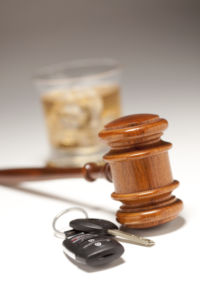
If you’re facing a civilian or military DUI, the charges could impact both worlds. When a service member is charged with a DUI on a military installation, she may be subject to an Article 15 or court martial process. Being charged with drunk driving off base could impact you on base as well. If local authorities charge you with drunk driving, your commanding officer may also punish you for misconduct. In those situations, punishment may include extra duty or referral to an alcohol abuse treatment program. DUI charges can have serious consequences for uniformed service members. This article explains how the process works, likely punishments, and how the military and civilian justice systems interact.
Military courts do not have exclusive jurisdiction over DUI charges, because civilian courts can also have jurisdiction depending on where the incident/arrest took place. If DUI charges are initially filed by both military and civilian authorities, the two entities will often coordinate to decide how the service member will be prosecuted. Keep in mind, though, that a DUI can result in both military and civilian charges and, even if you’re acquitted of DUI charges in civilian court, the military can still take punitive actions against you based on that same incident which could involve a court martial.
While the military generally has jurisdiction over active duty service members and any crimes they commit wherever they take place, the jurisdiction of civilian courts is usually determined by whether the incident took place on a federal military installation (no state jurisdiction) or not as well as the circumstances of any arrest, as noted below:
You can be charged by the military under authority of the Uniform Code of Military Justice (UCMJ), Section 911: Art. 111 and subject to both a court martial and adverse administrative actions. You will not face civilian criminal charges for the DUI. However, the state may still suspend your license, require use of an interlock device, or impose other non-criminal penalties that affect your driving privileges.
If the state or other civilian authorities charge you with a DUI off of a military installation, you will likely only face criminal charges in civilian court. Still, your commanding officer may concurrently take administrative actions, such as mandatory substance abuse treatment, revocation of pass privileges, or corrective training. The military may also charge you with other crimes related to the incident (disorderly conduct) or could bring DUI charges against you after the conclusion of your civilian case.
You will face DUI charges in federal court, not state court, but the federal court will likely apply the state’s DUI laws (since there are no federal DUI laws applying to civilians). This could apply to a service member’s civilian family or friends or to civilian employees that work on, or otherwise have access to, a military installation.
If you or a loved one is in a bind as a result of a criminal charge, immediately contact a Seattle Criminal Attorney. A Criminal lawyer is not going to judge you, and understands that everyone makes mistakes. Hiring a Seattle Criminal Lawyer to help can – at a minimum – reduce penalties, and can help direct people on how to best deal with their criminal charge, and many times even get them dismissed. So it should go without saying that someone cited for a misdemeanor or felony should hire a qualified Seattle Criminal Lawyer as soon as possible. Criminal charges can cause havoc on a person’s personal and professional life. Anyone charged with a crime in Washington State should immediately seek the assistance of a seasoned Seattle Criminal Lawyer. SQ Attorneys can be reached at (425) 359-3791 and/or (206) 441-0900


